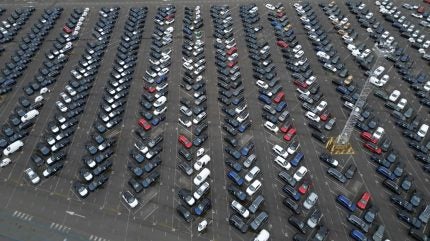
European Union (EU) and Chinese officials are in ongoing discussions regarding alternatives to European tariffs on Chinese electric vehicles (EVs) but no agreement is close, reported Reuters, citing EU officials involved in the talks.
One option being considered is setting minimum prices for these vehicles in Europe.

Discover B2B Marketing That Performs
Combine business intelligence and editorial excellence to reach engaged professionals across 36 leading media platforms.
The clarification from the EU officials comes after European Parliament’s trade committee chairman Bernd Lang previously suggested that an agreement was near.
Speaking to German broadcaster n-tv, Lange had earlier said: “We are close to an agreement: China could commit to offering e-cars in the EU at a minimum price. This would eliminate the distortion of competition through unfair subsidies, which is why the tariffs were originally introduced.”
However, unnamed EU officials have clarified that obstacles remain in the negotiations with Beijing.
The talks aim to address concerns over artificially low prices due to Chinese state subsidies.
In response to these subsidies, the EU increased tariffs on Chinese-built EVs to as much as 45.3% following a investigation.
This decision has created divisions within Europe and prompted retaliatory measures from Beijing.
In a separate development, China has advised its auto manufacturers to halt investments in EU countries supporting additional tariffs.
This strategy is viewed as an attempt to gain leverage in negotiations with the EU.
China is keen to prevent a decline in EV exports to Europe, which accounted for over 40% of its EV exports in 2023.
With the US and Canada imposing 100% tariffs on Chinese-made EVs, a reduction in exports to Europe could worsen domestic overcapacity issues for Chinese automakers.
Italy and France, although supportive of Chinese investments, have expressed concerns about the impact of affordable Chinese EVs on European manufacturers.
Despite the tariffs, Chinese EV firms hope to remain competitive in the EU market supported by the production and pricing advantages.






